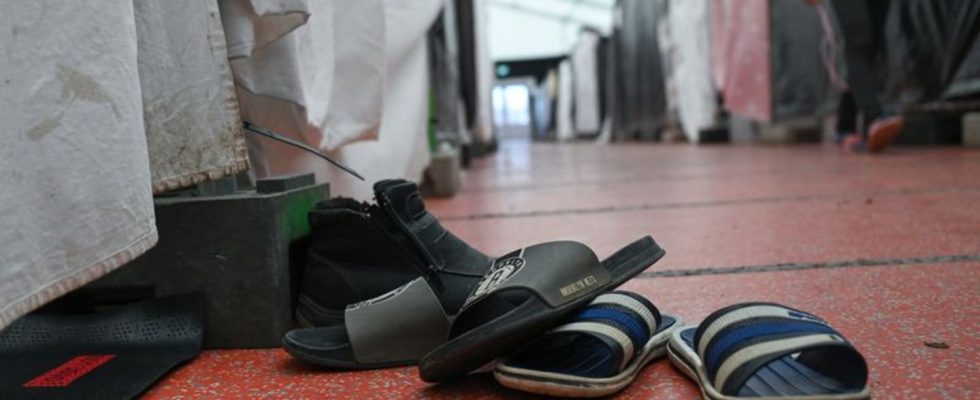migration
Criticism of traffic light refugee policy: Union application rejected
The traffic light coalition is struggling to find a common course on refugee policy. photo
© Arne Dedert/dpa
Not only politicians from the ranks of the CSU and CDU are dissatisfied with the refugee policy of the federal government. In a vote in the Bundestag, however, the traffic light coalition partners are close together.
The left-wing faction and Pro Asyl have accused the federal government of wanting to undermine refugee protection with fast-track procedures at the EU’s external borders. On the other hand, the Union demands in a motion that was rejected in the Bundestag on Friday: “Irregular migration to Germany must be noticeably reduced in order to relieve the municipalities and to maintain acceptance of Germany’s humanitarian responsibility for those actually in need of protection.” At the same time, the municipalities should be given more support by the federal government in accommodating and caring for refugees and asylum seekers.
The deputy leader of the Union parliamentary group, Andrea Lindholz (CSU), called on the federal government to designate more countries as “safe countries of origin” and to stop additional programs to take in people seeking protection.
According to Bundestag Vice President Wolfgang Kubicki, 410 MPs rejected the application. 169 MPs voted in favor. 66 MPs abstained. The Union had requested a roll-call vote. However, the result held no surprises. The members of the Union who were present voted unanimously in favor of the motion, while there were only no votes from the SPD, Greens, FDP and Left Party parliamentary groups. All AfD MPs who cast a ballot abstained.
“Humanity has no upper limit”
The SPD MP Peggy Schierenbeck said to statements by Union politicians about the increase in the number of asylum seekers this year: “With us there will be no upper limit, because humanity has no upper limit.” This week, the federal government internally agreed on a position that Germany will represent in the ongoing negotiations on a reform of the Common European Asylum System (CEAS). The representatives of the parliamentary groups in the Bundestag’s Interior Committee were informed on Friday.
“It is outrageous and violates the traffic light coalition agreement when the federal government advocates that there should be mandatory border procedures,” said the left-wing faction’s migration expert, Clara Bünger. “Under actual detention conditions, there can be no fair asylum checks at the EU’s external borders,” she added. The suffering at the EU’s external borders, which the traffic light actually wanted to end, is thereby intensified and declared a legal norm. “The fact that the federal government is now increasingly abandoning its strong human rights positions is a dramatic signal,” commented Pro Asyl.
Freedom of movement at risk?
Federal Interior Minister Nancy Faeser (SPD) recently warned that freedom of movement in the Schengen area would be in danger without an agreement on a GEAS reform. One of the controversial points at EU level is what contribution countries like Poland and Hungary could make that have not yet been willing to participate in the distribution of asylum seekers from countries with external borders like Italy and Greece. In addition, there is the suggestion that in the future it will be checked immediately after registration in the external border states whether someone has a chance of protection or not.
FDP General Secretary Bijan Djir-Sarai called for tangible changes in immigration control on Thursday. He said: “Germany needs a new course in migration policy. We urgently need a migration policy that is in line with reality, is in the interest of our country and does not ignore the concerns of the citizens.” When asked about this statement, the FDP MP Stephan Thomae said on Friday in the Bundestag that the traffic light coalition wanted to implement humanitarian, constitutional and international law obligations in migration policy. At the same time, she stands for a policy “that creates social acceptance” and, with easier entry for skilled workers, also has an eye on the economic requirements.

